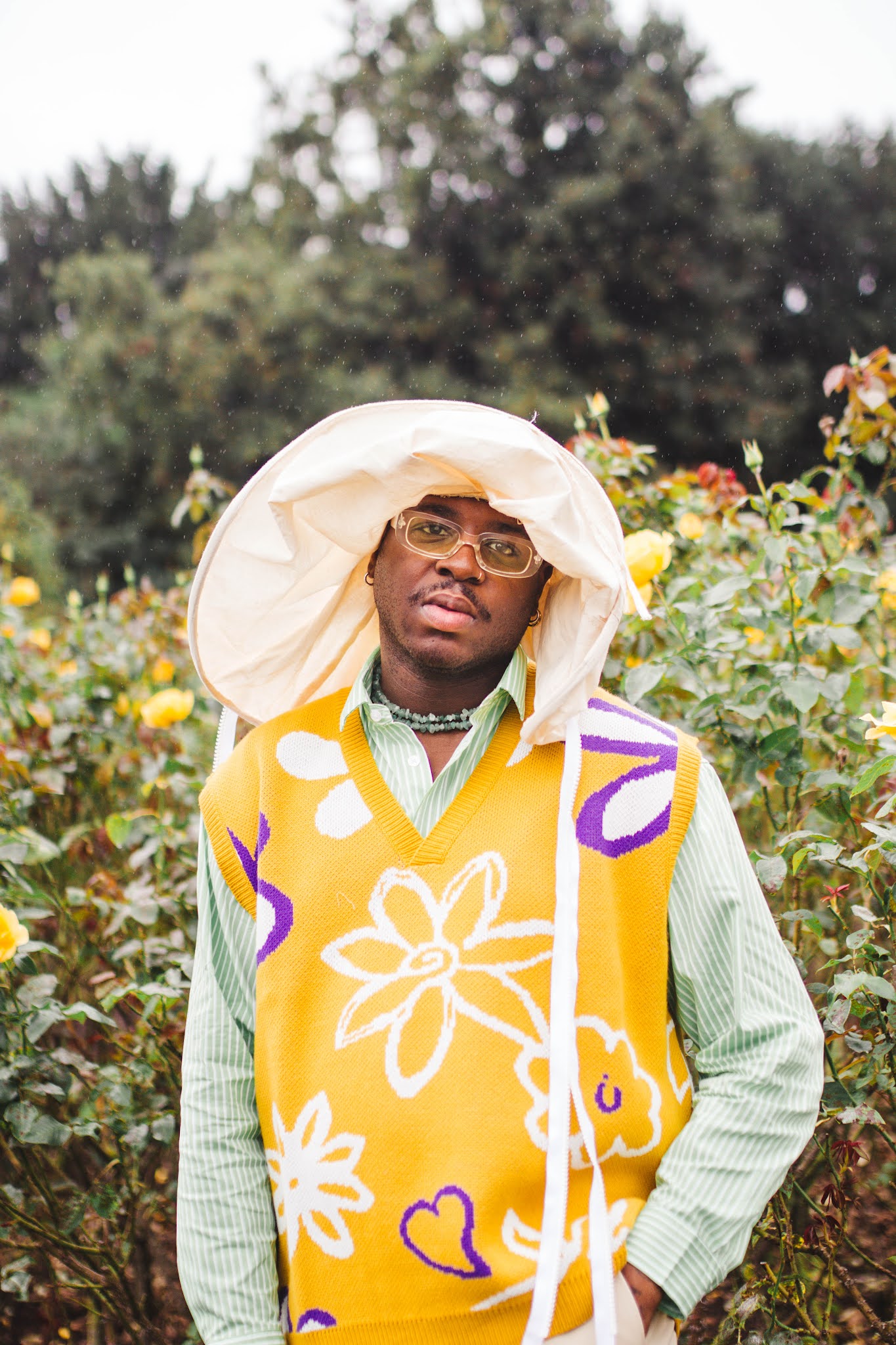Here's to another segment of 'five minutes (or more)' - conversations aiming to showcase rising creatives. This month, multi-disciplinary artist Qhairo discusses self-discovery through the lens of his eclectic and impulsive music.
Last year, your debut ep
‘60FOOTNOIR’ was released with the main theme being identity. How does your
artistic expression intertwine with your self-discovery?
My artistic expression and
self-discovery have always been intrinsically linked. However, in the past I
experienced blockages trying to connect them. For the debut ep, I wanted it to
be a stamping of who I was as a character without compromising any aspects of
myself, because before it was quite easy for me to be rooms and plicate
myself.
Even relating to my queerness
and blackness - when I was younger, I would attempt to explore these aspects of
my identity but did so in a fragmented and compartmentalised way. I would
compromise aspects of myself depending on the people I was with - if I was with
queer people, I isolated my blackness and if I was with black people, I
isolated my queerness. I didn’t think they were things that could interlink. So
‘60FOOTNOIR’ is an exploration and celebration of those aspects of my life
unifying!
Is there enough representation of queer and fluid black folks in the music industry, especially in the U.K?
No, not even remotely.
Growing up, I never imagined my queerness and blackness could merge. I didn’t
know it could exist or at least ever be accepted by society because there was
no representation in the community. Instead, what I saw was a specific version
of black manhood being celebrated. Which consequently became the image
predominately commodified in the music industry.
It’s important to
understand that this representation is still valid - it matters to hear artists
talk their stuff and hear them brag about wealth. However, there is a lack of
fluidity and humanity, in terms of what the industry propels. And there is a
multitude of different types of black people who need to be celebrated in order
for society to know that they exist.
Black people are not a
monolith – despite the particular archetypes pushed by the media.
As an artist, do you feel pressure to create that representation?
There was a point where I
felt pressured to create that representation, but I realised that being
authentically myself is representation. I am the representation. Even if I
write songs on minuscule subjects, like down-low gay friends subtly liking each
other – that is someone’s reality. They’ll recognise that I am someone coming
from the same place as them.
I grew up on
story-telling music, whether it was roots-reggae, classic jazz or even folk, so
I am only ever striving to give my perspective. If I am as honest as possible
in my music – I cannot do it wrong even if someone attempts to commodify me.
And that is one of the things that are important to me.
Name one artist that has
influenced you or your music?
If I had to choose one
specific artist, it would have to be Frank Ocean. He had an impact on my life
as he was one of the first musicians I thought represented me.
Previously, I had never
encountered someone who I felt sounded like me, not musically but on a personal
level. His music viscerally sounded like my inner thoughts.
When I discovered he
identified as fluid, it completely changed how I created music and led me on a
deeper journey of self-discovery. It was at that point that I realised the
importance of being my authentic self. I knew I would be fulfilled if my music
could be for someone, what Frank Ocean's music was for me.
You push creative boundaries in your style! How important is the way you choose to present yourself on the exterior?
Very important. Society
categorically divides us into boxes depending on our appearance, gender and
even our entourage. I have always admired those who exist outside of those
constraints. As a human, I never felt as though I sat in any one place, so I’ve
always used fashion to reflect that.
Growing up in the area I
did, I wasn’t always proud of this because an expressive style was often
associated with certain stereotypes like being soft. So, it was a thin line
that I had to thread often - do I wear what I want or what will allow me to
remain in certain social groups? Now dressing how I want has become a source of
power, a physical affirmation of who I want to be.
Tell us about the singles you released this year, Glitter and What Are You Waiting For (ft Zilo)?
I created ‘Glitter’ in
early 2019. I struggled to release it for a long time because I feared it would
be easy for people to pigeonhole me. At the time, I felt pushed into a space
and wanted more time to explore. This year, I felt confident releasing it with
the existing context of who I am as a character from ‘60FOOTNOIR’.
As for ‘What Are You Waiting For?’ I wrote that with my best-friends Zilo and Dan D Lion. I’ve been
friends with them for a number of years, so it was just nice to create an
effortless song together as creatives.
What is one message you want your listeners to get from your music?
Whatever message they
want. I want my art to be interpreted in whatever way the audience feels is
truthful and relatable to them. And that is enough for me.
-----









